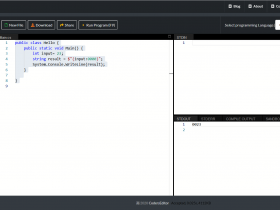String Interpolation in C# 6.0
C# 6.0 Features Series
- How to try C# 6.0 and Rosyln?
- Getter-only (Read Only) Auto Properties in C# 6.0
- Lambda and Getter Only Auto-Properties in C# 6.0
- Initializers for Read-Only Auto Properties in C# 6.0
- Initializers via Expression Auto Properties in C# 6.0
- C# 6.0 – A field initializer cannot reference the non-static field, method, or property
- Lambda Expression for Function Members in C# 6.0
- Dictionary Initializers (Index Initializers) in C# 6.0
- Expression Bodies on Methods returning void in C# 6.0
- using keyword for static class in C# 6.0
- Unused namespaces in Different Color in Visual Studio 2015
- Null-Conditional Operator in C# 6.0
- Null-Conditional Operator and Delegates
- nameof Operator in C# 6.0
- Contextual Keywords in C#
- String Interpolation in C# 6.0
- Exception Filters in C# 6.0
- Await in Catch and finally block in C# 6.0
String Interpolation is yet another feature in C# 6.0 that lets the users to concatenate two or more strings together . The String Interpolation is not just about string concatenation. In the previous versions of C# , we used the + operator to concatenate strings or use String.Format method which provides additional options to format the string. The String.Format is one of the useful method and most frequently used method for formatting the strings but sometimes it can be error prone considering the usage of the arguments {1} or the placeholders as shown below.
var str = String.Format("{0} is a {1}", "Senthil Kumar", "Programmer");
With String Interpolation , the developers can put the expressions directly in the string literal and display the value in a properly formatted way. You can apply different format specifiers like the way you do it for string.format method as well as specify conditions within the string literals. Below is a sample code snippet demonstrating the usage of the String Interpolation in C# 6.0
string name = "senthil";
int age = 18;
var input = "{name} is { age : D3} years old";





Leave a Review